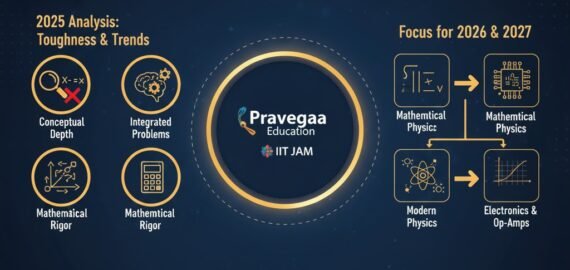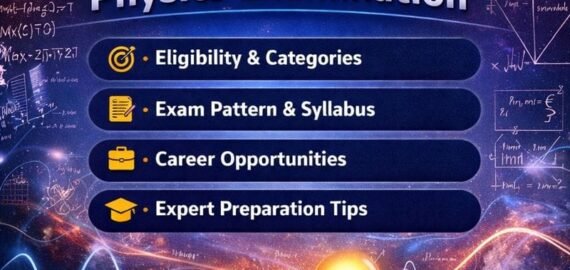IIT JAM 2025 Physics Previous Year Question Paper Analysis: What the Paper Reveals for IIT JAM 2026 & IIT JAM 2027 Aspirants
The IIT JAM 2025 Physics paper was not merely an examination—it was a statement. A statement about where the IIT JAM Physics exam is headed and what it expects from aspirants preparing for IIT JAM 2026 and IIT JAM 2027. A close editorial reading of the paper shows that JAM is steadily moving away from formula-driven problem solving […]








